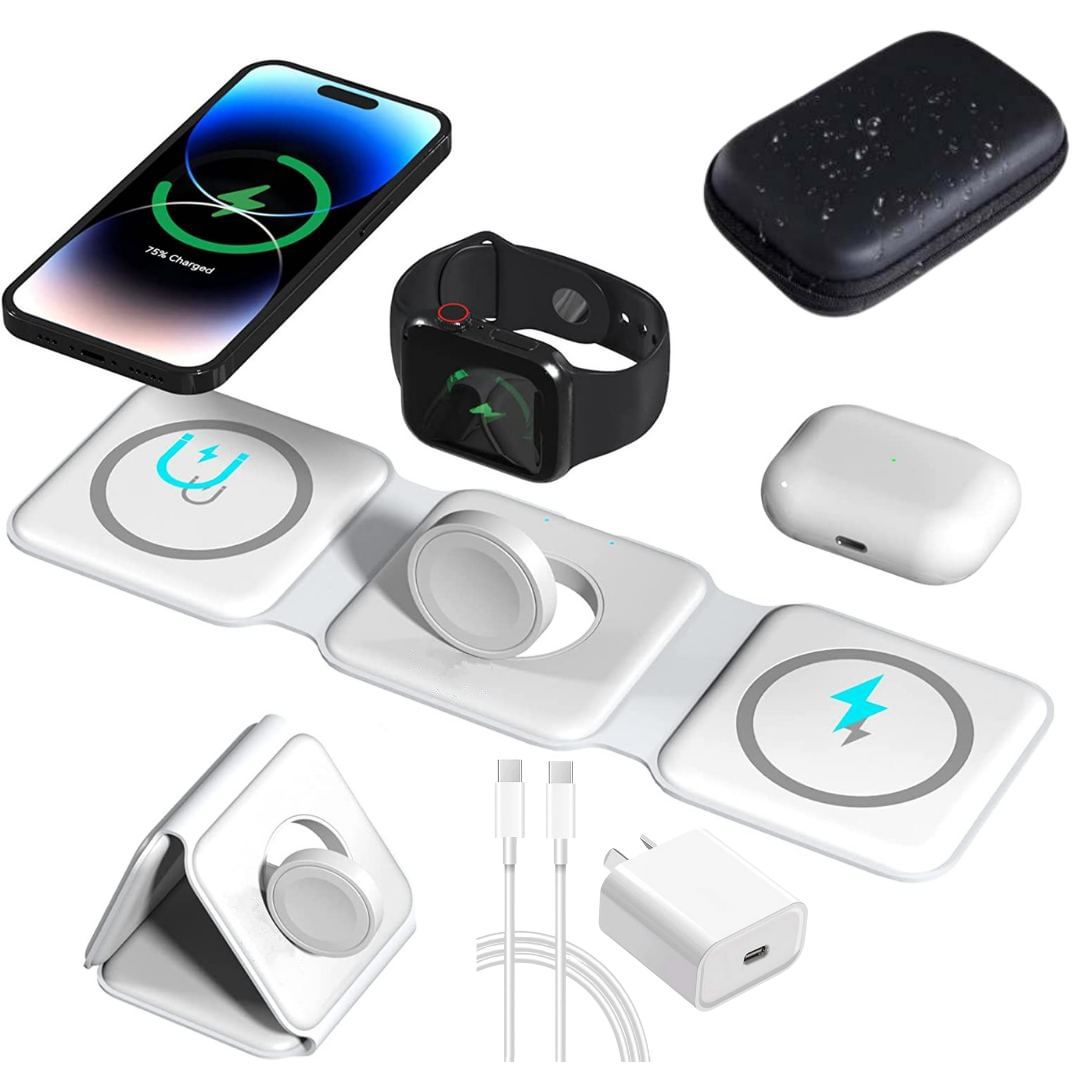
This article teaches you how to choose a wireless charger for your smartphone as well as other devices, and what to look for when buying one.
How Do I Choose a Wireless Charger?
While picking out a wireless charger is fairly simple at heart, here's a look at how to do so appropriately.
1. Check that your smartphone can be charged wirelessly. Not all smartphones support wireless charging so it's important to confirm yours does.
2. Look for a wireless charger that supports the Qi charging standard for maximum efficiency and compatibility.
3. Check the power wattage. Different smartphones use different wattage. While not all of them will support up to 10W for fast charging, it makes sense to buy a wireless charger that offers 10W charging so it's future-proofed.
4. Look at how the wireless charger connects to a power source. Does it come with a wall adaptor or use microUSB or USB-C to take power? It's important to consider how you plan on plugging it in.
5. Pick a reliable brand. Brands like Anker, RavPower, Morphie, Belkin, and Samsung are good options to pursue. Avoid unknown brands with low review ratings.
Does It Matter Which Wireless Charger I Use?
Yes and no. For the most part, whatever wireless charger you buy should have gone through rigorous testing and be perfectly safe to use. It's still a smart idea to pick one from a reputable brand as explained above.
It's also important to pick a wireless charger that fits into your home aesthetic. Some are charging pads which can be placed on your desk or a shelf while others can charge your phone at an angle so you can still see its display at all times. Some can even be used as a nightstand so it doubles up as an alarm while it charges.
What Do I Need to Know About Wireless Chargers?
It's important to consider a few other factors about wireless chargers before you buy one. Here's a look at some key facts.
1. Wireless chargers don't work with all phones.
Not all smartphones support wireless chargers. Many iPhones support it including the iPhone XS range and above, as well as many Samsung phones, and much of the Google Pixel range. It's important to check yours does before purchasing one.
2. Your case shouldn't affect it.
Many phone cases still allow for wireless charging but, again, it's worth checking to make sure your preferred case doesn't interfere with wireless charging. It's a pain to remove a case each time you want to charge.
3. Wired charging is faster.
If speed is everything to you, stick to charging via a cable. Wireless charging is slower and less efficient but less messy and super convenient.
4. Wireless chargers work with more than just phones.
If you have wireless earbuds that have a charging case that support wireless charging, you can place the charging case on your wireless charger too.
Do All Wireless Chargers Work the Same?
No. Crucially, some wireless chargers use different standards to Qi and it's best to stick to Qi. That's because it's been adopted by most phone manufacturers and also typically offers over-voltage and overcharge protection so they're safer too.
It's also important to check the wattage of your wireless charger. The lowest wattage is 5W with iPhones charging at a maximum of 7.5W, Samsung phones charging at 9W, and some Android phones supporting up to 10W. The higher the wattage, the faster the phone charges.
----By Ryan Perian






